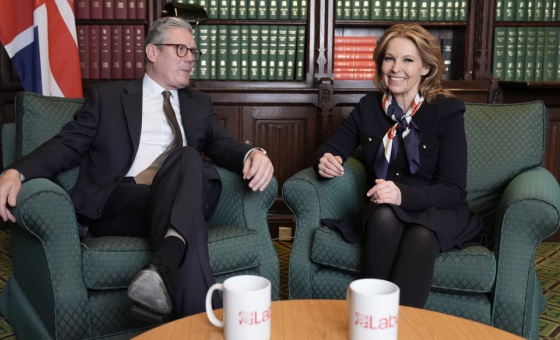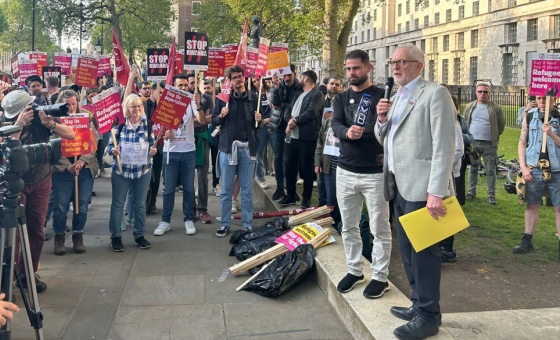This is the last article you can read this month
You can read more article this month
You can read more articles this month
Sorry your limit is up for this month
Reset on:
Please help support the Morning Star by subscribing here
MORE than 10,000 children have been placed into local authority care in England because of families’ increasingly desperate poverty, a new report revealed yesterday.
Researchers at the University of Liverpool found that child poverty is a “major preventable driver” of young people being taken from their family homes and put into care.
Child poverty campaigners demanded “comprehensive action” in response.
Rising child poverty, caused largely by benefit cuts, was a factor in 10,351 children going into care from 2015-20 at a cost of £1.4 billion, according to the report.
A further 22,945 children were placed on a child protection plan, and 51,736 were identified as facing “an episode of need.”
The research found that local authorities covering deprived areas were disproportionately affected, causing deepening inequalities.
The worst-hit areas have been north-east England and parts of north-west England.
Lead author Davara Bennett said: “This study offers evidence that rising child poverty is a major preventable driver of the increase in children being removed from the family home and taken into local authority care — one of the most drastic state interventions into families’ lives.”
Senior author Professor David Taylor-Robinson said poverty was increasing the risks of abuse and neglect.
“This is all the more shocking since child poverty is preventable in a rich country like the UK,” he said.
Child Poverty Action Group chief executive Alison Garnham said: “The findings are a stark warning of what happens when governments turn a blind eye to child poverty.
“The need for an approach to tackle poverty that is more than one-off emergency payments could not be clearer.
“Protecting the wellbeing and life chances of children should be the nation’s number one priority and it needs comprehensive action.”
The report came as new figures identified “rapidly accelerating food inflation” with prices of basic foods soaring, and days after the Office for National Statistics said the cheapest pasta had increased in price by 50 per cent, alongside “substantially higher” prices for bread and minced beef.
British Retail Consortium chief executive Helen Dickinson said: “It is likely to get worse before it gets better for consumers with prices continuing to rise and a further jump in energy costs coming in October.”

 Peter Lazenby
Peter Lazenby










